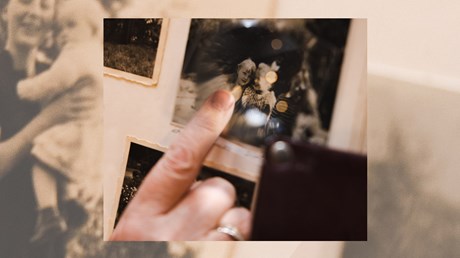But use it to praise God’s goodness, not a romanticized past.

This time of year, I’m seeing double. I view things as they are and as they used to be. The school bus up ahead flicks out its stop sign, and there I am, disembarking as a child. But really, I’m driving an SUV, impatiently waiting for it to move. The apple crisp I eat for breakfast tastes like it did last year, and five years ago, and 20 years ago. There is again that familiar desire to institute routines, buy clothes, and cut my hair.
But something about that desire is different. I’m not a kid or a student anymore, embarking on a new curriculum or moving into a new dorm room. I know more about what to expect. And I understand how unexpected—sometimes terribly unexpected—this life can be.
Times were simpler then, when I didn’t know what was coming and didn’t believe it could possibly be difficult. I just knew sheets washed by someone else. After-school celery spread with peanut butter. The happy uncertainty of what to be for Halloween.
Beware, believer, of becoming nostalgic.
Our faith is about the future. We look to the Resurrection and the life of the world to come. We remember, yes, but largely because remembering is essential to testimony. Our story doesn’t stall out in the past but takes us right up to the present. What God has done becomes what God will do, and that promise provides evidence of impending blessing . We are located in the “already but not yet,” and the “not yet” is somewhere up ahead. The best is yet to come.
Yes, I want that newness. I want the “not yet” right now. But I also want the old: scratching a pencil down a column of algebra or folding the corner of a chapter book. A roommate making brisket the last fall before either ...
from Christianity Today Magazine
Umn ministry


.gif)

.gif)
.gif)
